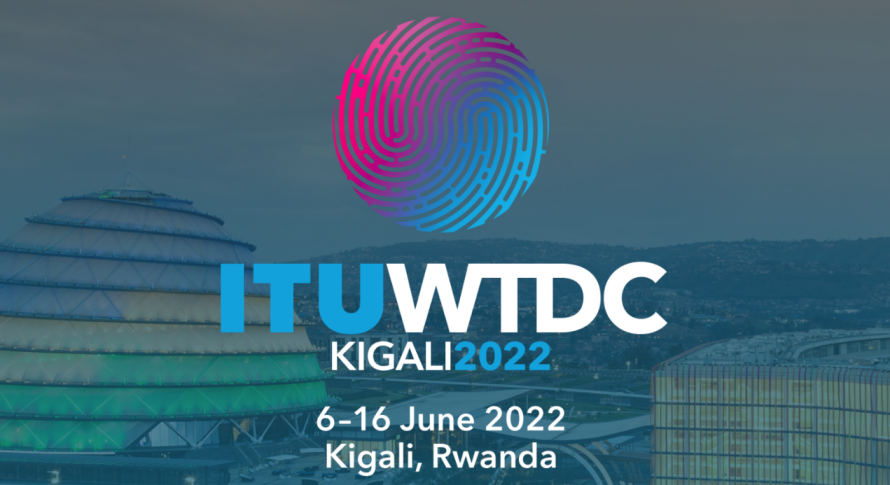
At the conference that will gather policy makers and regulators from around the world, APC will highlight the importance of policy, regulation and financial support to community networks and other community-based connectivity initiatives.
Under the theme “Connecting the unconnected to achieve sustainable development”, the ITU World Telecommunication Development Conference (WTDC) will gather representatives from hundreds of countries in Kigali, Rwanda, from 6 to 16 June 2022 to discuss and set the strategies and objectives for the development of telecommunications and ICTs around the world.
The International Telecommunication Union (ITU) is the specialised agency of the United Nations responsible for all matters related to information and communications technologies (ICTs). As part of its development sector (ITU-D), the WTDC happens every four years, gathering delegations from the 193 ITU-D member states, including policy makers and regulators, representatives of its sector members, and observers.
As a sector member of ITU-D since 2014, APC works within the Local Networks initiative* to identify opportunities for giving greater visibility to community networks initiatives and advocating for recommendations that can support change in policy and regulations at the national level.
This year, at the first conference since the COVID-19 pandemic outbreak, the WTDC will feature commitments to foster meaningful connectivity and digital transformation globally through the Partner2Connect Digital Development Roundtables, happening from 7 to 9 June. APC’s executive director, Chat Garcia Ramilo, will join the High-Level Panel 10, happening on 9 June, Thursday from 8:15 to 9:15 UTC.
Registration is open to non-members in the case of the roundtable through ITU’s platform.
This will be an opportunity for APC to emphasise its commitment to continue working to foster the training and mentoring of community network facilitators; build an open, sustainable and accessible internet for digital inclusion and social, gender and environmental justice; and support mechanisms for funding locally owned internet infrastructure (check out APC's pledes).
Meaningful connectivity in the spotlight
The Digital Development Roundtables is an initiative of the Partner2Connect Digital Coalition (P2C) – a multistakeholder alliance – following the launch of a Pledging Portal and a Focus Areas Action Framework by P2C on 16 March this year.
Following the P2C’s recognition that multistakeholder collaboration is needed and the direct leadership of governments, policy makers and the regulatory community is essential to achieve meaningful and universal connectivity, this action aims to be an opportunity to finally take a holistic approach, to pledge, and to mobilise the resources needed to connect those who are still offline.
The coalition has been receiving pledges from member states, the private sector, academia, civil society, international organisations and other entities via the platform, and now the WTDC roundtable will give an opportunity for attendees to announce their commitments to advance towards them.
According to the Partner2Connect Action Framework Report, nearly 87% of people in developed countries were using the internet in 2019, compared with 47% in developing countries. “Digital divides are also evident within countries. Men, urban residents and young people are more likely to be online than women, rural dwellers and older persons,” adds the report, recognising that “place-based policies could help bridge digital divides and reduce systemic exclusion.” The persistence of the digital divide year after year demonstrates that a complementary approach is needed, since the current economic and regulatory models have not been able to overcome structural socioeconomic barriers for digital inclusion, exacerbating inequalities.
As part of the P2C Coalition, APC was invited to be part of the “Empowering Communities” focus area lead. From that role, APC has been highlighting the importance of all stakeholders committing to foster policy, regulation and financial mechanisms that enable community-led initiatives. Through providing support for 30 community-led initiatives in 16 countries across Africa, Asia, and Latin America and the Caribbean with partners, APC has witnessed that connectivity becomes meaningful when people and communities can use and shape technologies to meet their own needs.
* The Local Networks (LocNet) initiative is a collective effort led by APC and Rhizomatica in partnership with people and organisations in the global South to directly support community networks and to contribute to an enabling ecosystem for their emergence and growth. Community networks cultivate bottom-up, sustainable approaches to communication technology and meaningful connectivity that strengthen autonomy and self-determination. To keep up to date on this topic, subscribe to the Community Networks and Local Access Monthly Newsletter.